On a recent trip to South Florida to visit my family, I thought we should take this video series on the road and share it with some of Sam’s cousins. And since we would be in the most southeastern part of the country, only one country made sense to tackle. Considering the food and ingredients are as common in Florida as in the nearby country itself, I knew we had to do Cuba.
Just as a note: If you’ve been following along this journey very closely, you’ll notice Sam has somehow aged backwards on this episode. That’s actually because we filmed this years ago, but since I wanted to keep to an alphabetical order, I’m just now releasing this video. Sadly, this will be the last episode of Sam’s baby phase.
THE CUISINE

Cuba is probably the country we in the US are both closest with and most furthest away from. When living in South Florida, Cuba felt like another neighborhood to Miami. But, of course, due to our very delicate political relationship over the years, I think many Americans feel like it is on the other side of the world.
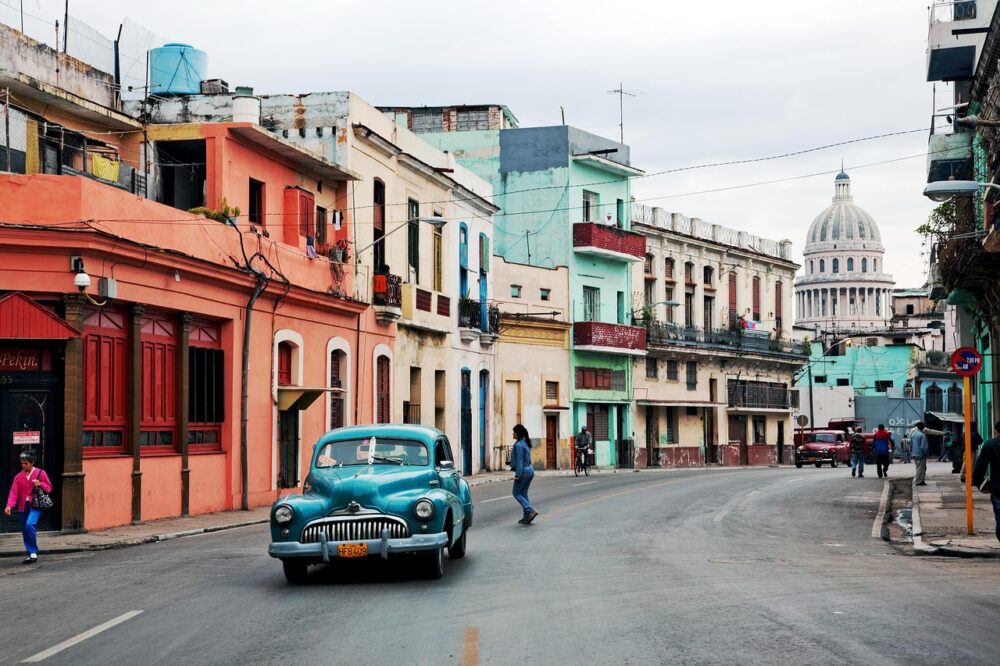
Of course, it is just off the coast of southern Florida where the Atlantic, the Gulf of Mexico, and the Caribbean Sea meet. It is the largest island in the Caribbean.
Typical Cuban cuisine takes its influence from a wide number of places, most notably Spain, Africa, and the indigenous Taino people.
Rice and beans are the basis for most meals, which usually also includes a variety of roasted or fried meats. Plantains are another filler thtn is very popular and common throughout the Caribbean.
Sugar and coffee are two other ingredients that are closely identified with Cuba and very important to the culture and industry of the country. And when you put them together, even better!
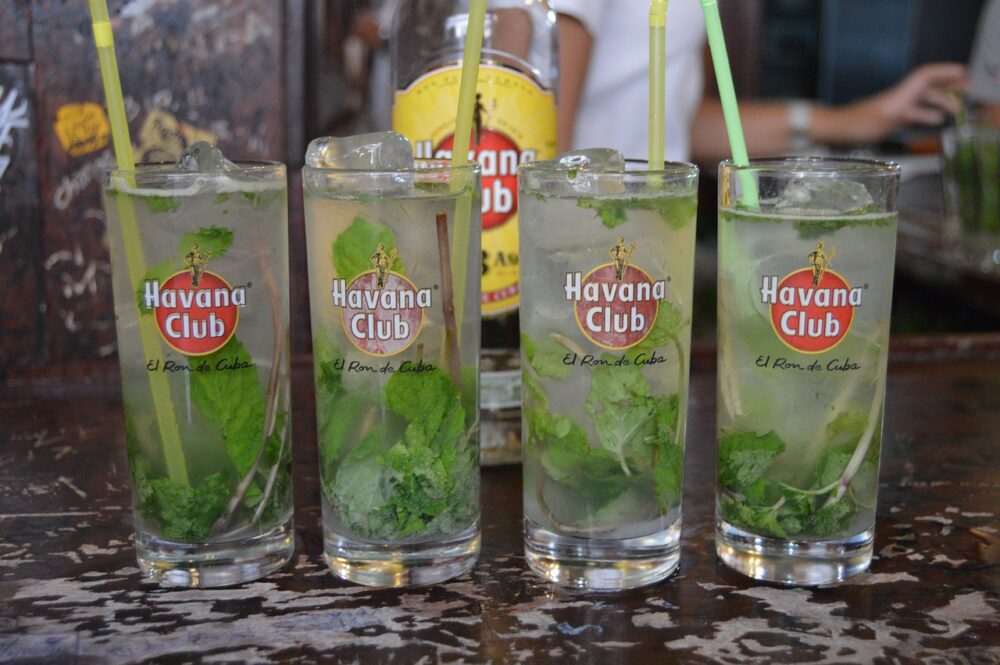
And let’s not forget rum and the classic mojito!
Traditional Dishes:
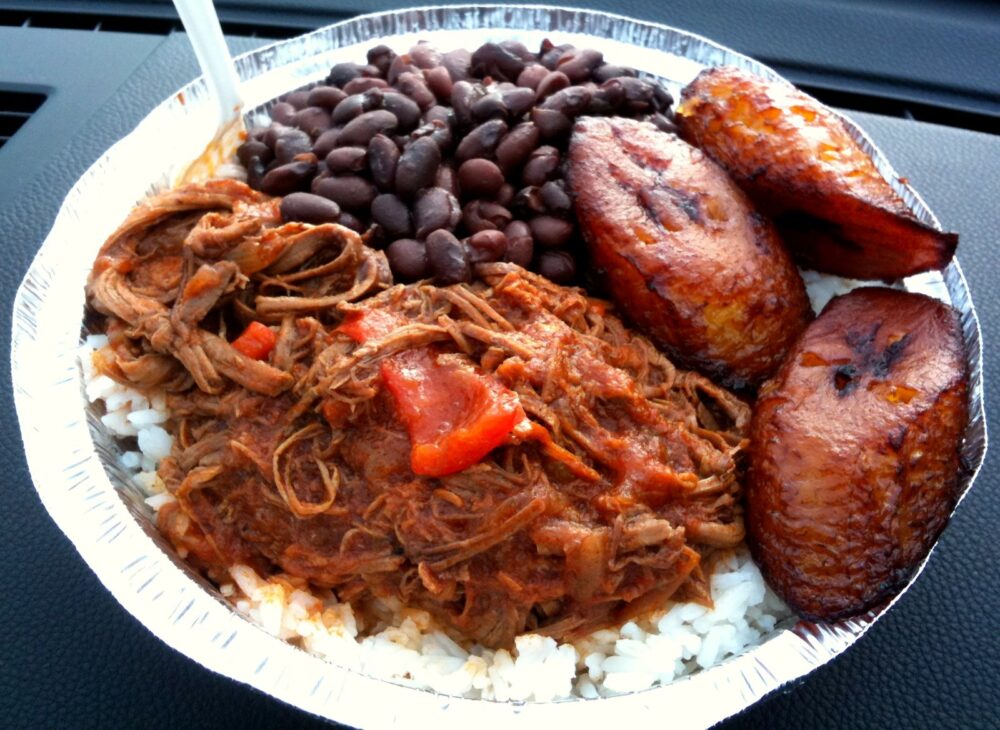
ROPA VIEJA – anyone who has tried this dish of shredded beef in a spiced tomato sauce served over rice knows it tastes a lot better than its translation “old clothes” implies
MEDIANOCHE – the Cuban Sandwich may have been invented in South Florida, but this version comes from Cuba and also features roast pork, ham, pickles, Swiss cheese, and mustard but is served on a softer sweeter egg bread; named for the fact that it is often eaten at midnight
VACA FRITA – similar to ropa vieja, but this skirt or flank steak is fried before being shredded and topped with fried onions and a squeeze of lime

FLAN – this creamy caramel dessert can be found all throughout the Caribbean and much of Latin America, but the Cuban version uses condensed milk, in addition to egg whites, cinnamon sticks, and is often sweetened with coconut milk
CUBAN FOOD IN NEW YORK
While we do not have nearly the quality or quantity of Cuban restaurants as Miami does, we do have a few gems that are worth seeking out for a great taste of Cuba.
Hand’s down, my favorite is in the unlikeliest of neighborhoods: the Theater District. Margon is a Cuban lunch counter that is cramped, crowded, and cheap. They make an incredible medianoche sandwich and a memorable octopus salad – not to mention their daily rotating specials. It’s only open for lunch and branches out to other Latin and Caribbean dishes, but it’s truly one of the best places to eat in Midtown.
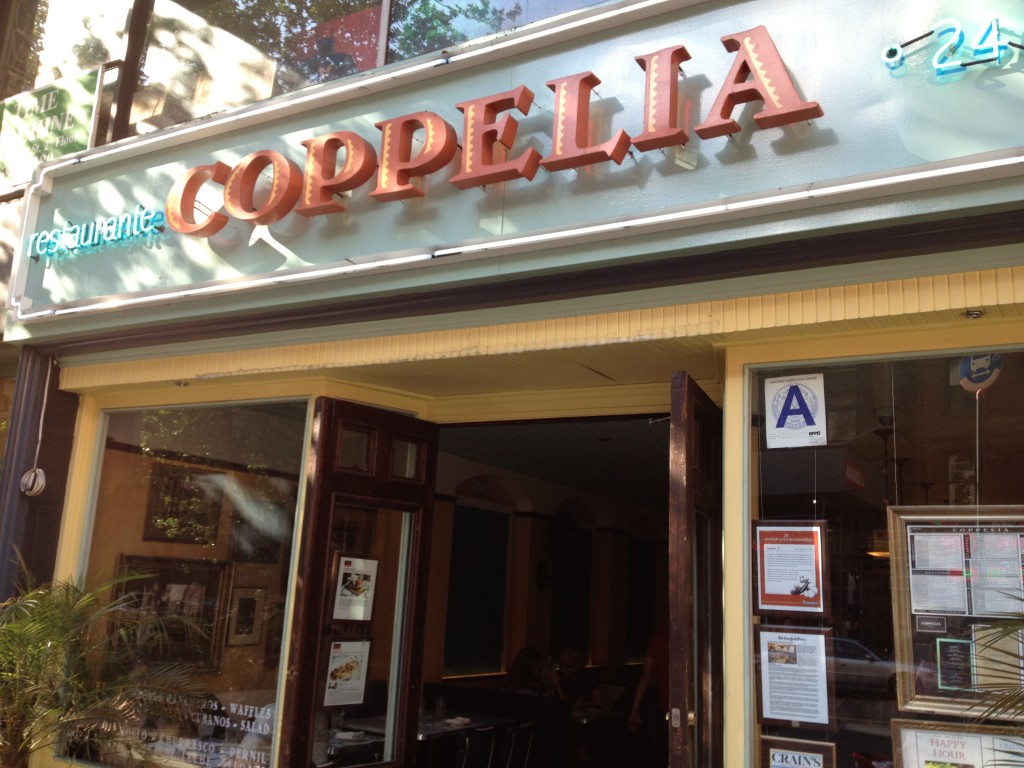
Coppelia has a bit more of a party vibe (they are open 24 hours) with a hip luncheonette feel. Cafe Habana is classic, although has a bit of a Mexican-thing going as well. Both Sophie’s Cuban Cuisine and Tina’s Cuban have a series of fast food joints around the city.
And for more lively and fancier restaurants (both of which I’ve never tried), there’s Cuba in Greenwich Village and Victor’s Café, which is very popular with the pre-theater crowd.
THE VIDEO
As a reminder, this was filmed a few years ago at this point, so everybody involved (including myself) is considerably younger and funnier.
This was a really special one because we had a very special guest. Sam’s cousin (and my nephew) Logan joined us in the kitchen.
Sam points out that we should now call the show Around the World in Three Kitchens, since my parents’ house in South Florida is the third kitchen we have cooked in during this journey.
Logan is a bit older than Sam (and maybe more excited for the food) but the two of them manage to speak the same language. While I was trying to keep us on track and learn about the food, the two of them took over the kitchen. As expected.
THE DISHES
Roast pork, or lechon asado, in Cuba, traditionally consists of the entire suckling pig being cooked in an outdoor fire pit. It’s definitely connected to big celebrations, like Christmas Eve.
When cooked at home, it’s usually a pork shoulder that has been marinated in mojo. Mojo is a tangy sauce made from sour oranges, lots of garlic, olive oil, and spices like oregano and cumin.
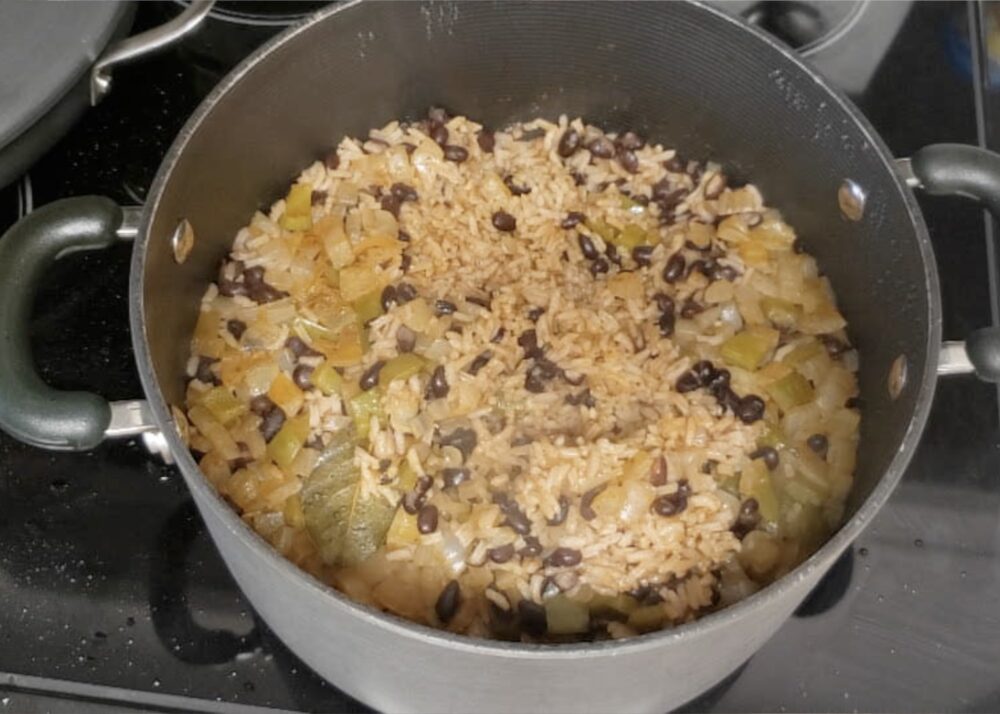
The lechon is usually served with rice and beans that are known as Moros y Cristianos. This name represents the Islamic African Moors and the white Christian Spaniards who lived together on the Iberian peninsula, where this recipe originated before being brought to Cuba.
The rice and beans are ultimately cooked together along with a sofrito, a paste made of onions, green peppers, tomato paste, and spices.
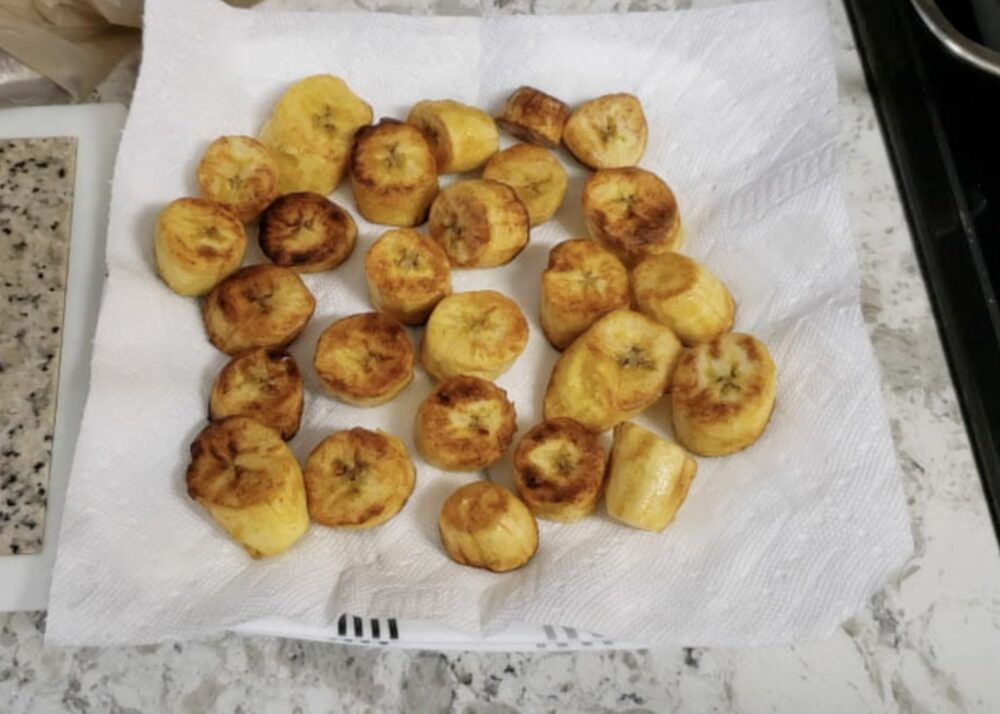
And the final component of this plate are fried sweet plantains, called maduros. I didn’t include a recipe for this as it’s pretty simple. and I’ve covered plantains in the past on this site.
The important thing with maduros is that the plantains are ripe (brown) and soft. It makes for a sweet crisp counterbalance to the tangy rich pork.
THE RECIPES
inspired by
icuban.com/food/lechon_asado.html
Recipe Card
Lechon Asado from Cuba
Description
This is a bit time consuming, but worth every second for the most popular Cuban recipe with tons of citrusy garlic flavors
Tons of Flavor in a Traditional Cuban Roast Pork
Meat
Mojo Sauce
Instructions
Mojo Sauce
-
Add garlic and olive oil to a bowl and whisk well.
-
Add cumin, oregano, salt, and pepper and continue whisking.
-
Add sour orange juice and whisk more.
-
Stir in onions.
-
Add to a sealed jar and shake well.
Marinating Pork
-
Make small slits throughout the pork. Not too deep – just to allow marinade to penetrate meat.
-
Add pork to a large sealable plastic bag. Pour marinade on top. Remove as much air as possible and close bag.
-
Refrigerate for 8-10 hours or overnight.
Roast Pork
-
Remove pork from bag and place in a roasting pan, fat side up.
-
Pour marinade over pork and roast for 5 hours or so, basting regularly.
-
Cook until pork is fork tender. Remove from oven and let rest for 10 minutes before slicing or shredding.
-
Serve pork with fried plantains, moros y cristianos, and mojo sauce.
Recipe Card

Moros y Cristianos from Cuba
Description
This classic Cuban side dish cooks rice and black beans (along with some vegetables) together to make them one cohesive dish
Ingredients
Sofrito
Rice and Beans
Instructions
Black Beans
-
Rinse black beans.
-
Add black beans to a pot of four cups of water. Bring to a boil, the simmer, and cover. Cook for about 60-75 minutes.
Sofrito
-
-
Heat large pot over medium heat. Add olive oil.
-
Once hot, add onions and green peppers. Sauté until tender, 5-10 minutes.
-
Add in garlic and salt. Cook for another minute.
-
Add tomato paste, oregano, and cumin. Mix together well to form a chunky paste.
-
Add bay leaf and vinegar and mix again.
Bring Together
-
Add vegetable and seasonings to the black beans.
-
Add rice to the pot.
-
Add 4.5 cups of water (or chicken stock) to cover the mixture. Mix well.
-
Bring to boil and then simmer, cover, and cook for about 20 -30 minutes.
-
Add salt and pepper and fluff with a fork.
SPECIAL INGREDIENTS
Sour Orange
These oranges are not as easy to find in the US, but it’s possible. Thankfully since we were in South Florida, I didn’t have too much trouble.
When ripe, the oranges have a wrinkled brown-orange color. Before they ripen fully, they are green and look like a big lime.
The juice is, as expected, sour and bitter. It works wonders in the mojo sauce, but if you can’t find them, you can use a combination of regular orange, lemon, and lime juice – double the amount of OJ and equal parts lemon and lime (2:1:1).
HOW WE SCREWED IT UP
The big problem we had was we did not give the pork enough time. It really needs 3-5 hours to cook. In fact, we had taken it out and started slicing it when we realized it still needed a few more hours to go. Total rookie move.
Once we agreed to wait a bit longer for dinner, we got the meat right. It’s definitely difficult to start early enough when you have a house full of kids vying for your attention.
By now, we have almost mastered cooking rice – even with black beans and sofrito mixed it.
And in all fairness, remember I was cooking in an unfamiliar kitchen (my parents’). It felt like a Top Chef competition and I am far from a Top Chef.
SAM (and LOGAN)’S REACTIONS
The pork was a hit for both kids. Nobody could resist the tender, marinated pork.
The plantains, however, were a harder sell. Sam took a quick lick and acted as if he bit into a lemon.
Logan contemplated the texture and the flavor and took some time, but ultimately gave it a fair 6 out of 10. For American kids used to sweet, soft bananas, I understand that starchy fried plantains are a tough sell.
Unfortunately, neither tried the Moros y Cristianos because the black beans within the rice somehow proved offensive to them. Their loss.
NEXT TIME

You might ask if the country next time is Greece or Turkey, but it’s neither. It’s Cyprus. This Mediterranean island country sits between those two larger countries and has strong influences from each. But Cyprus is certainly its own place with its own special cheese and we can’t wait to dive in.

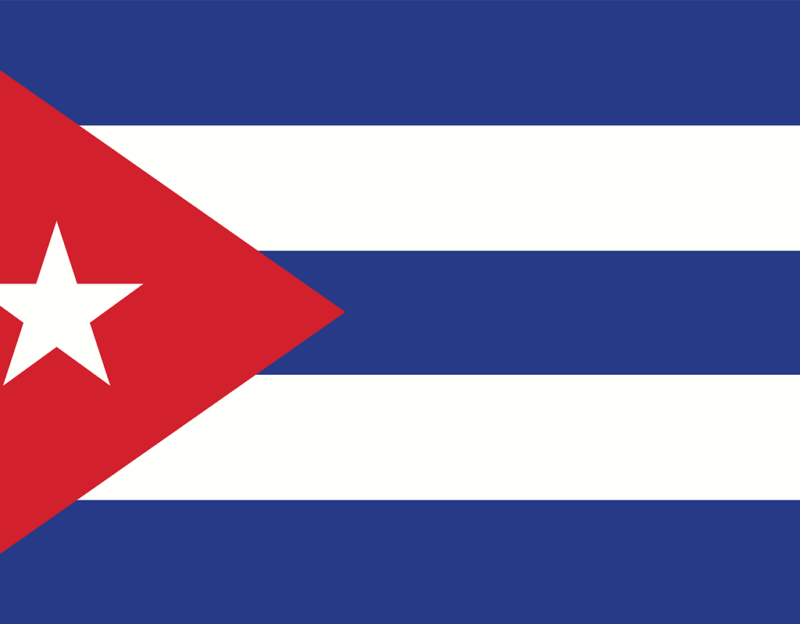

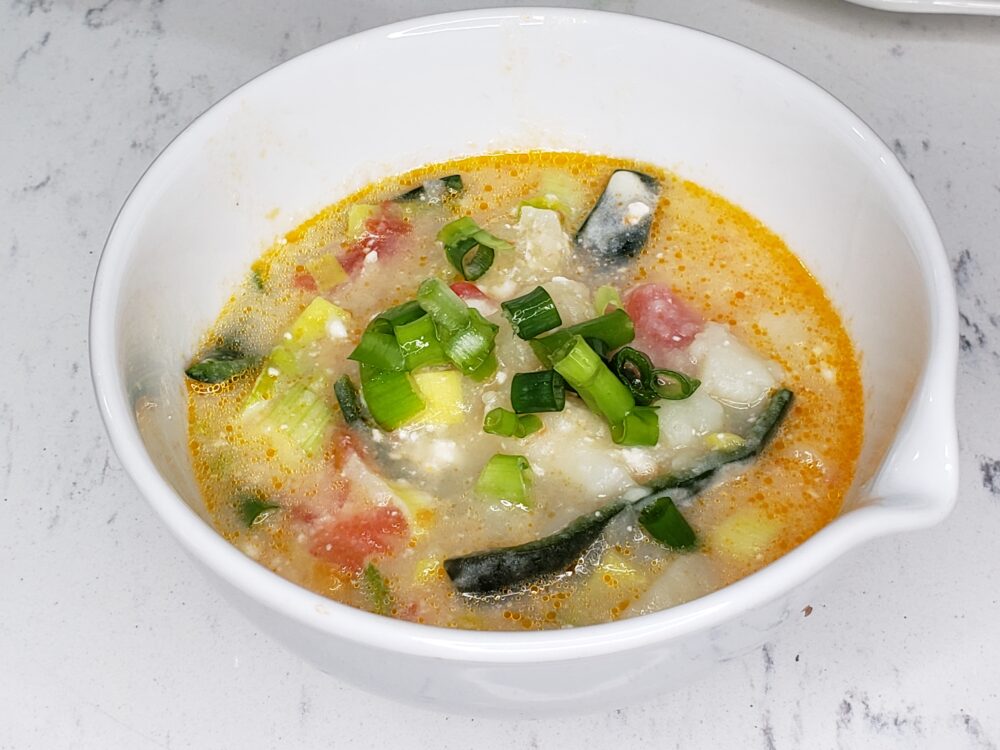
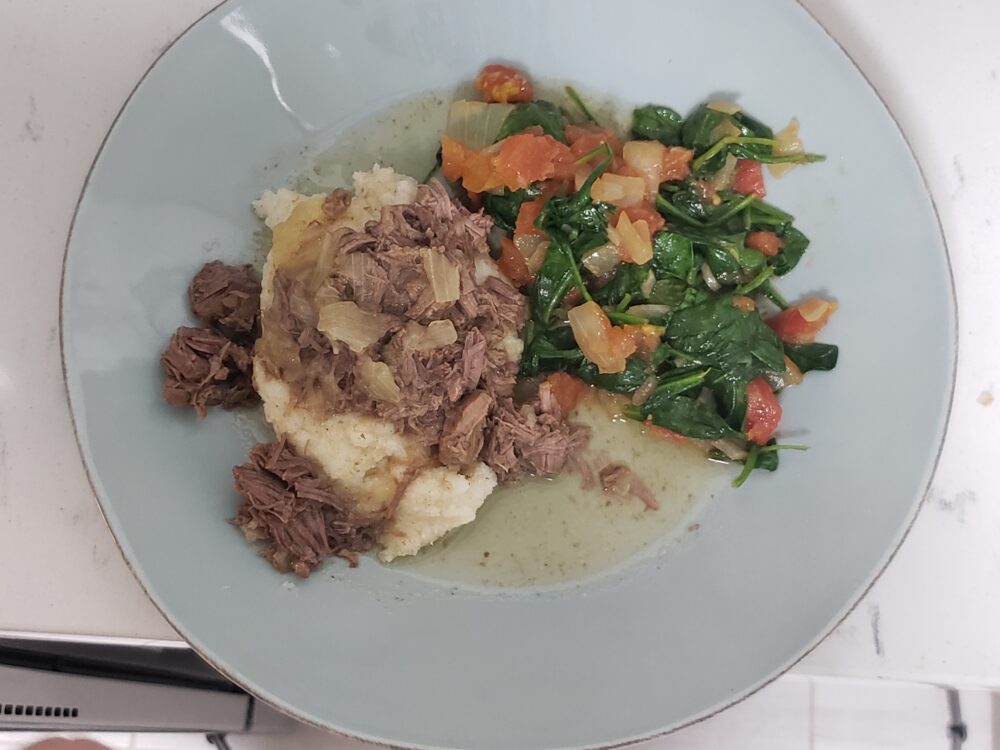
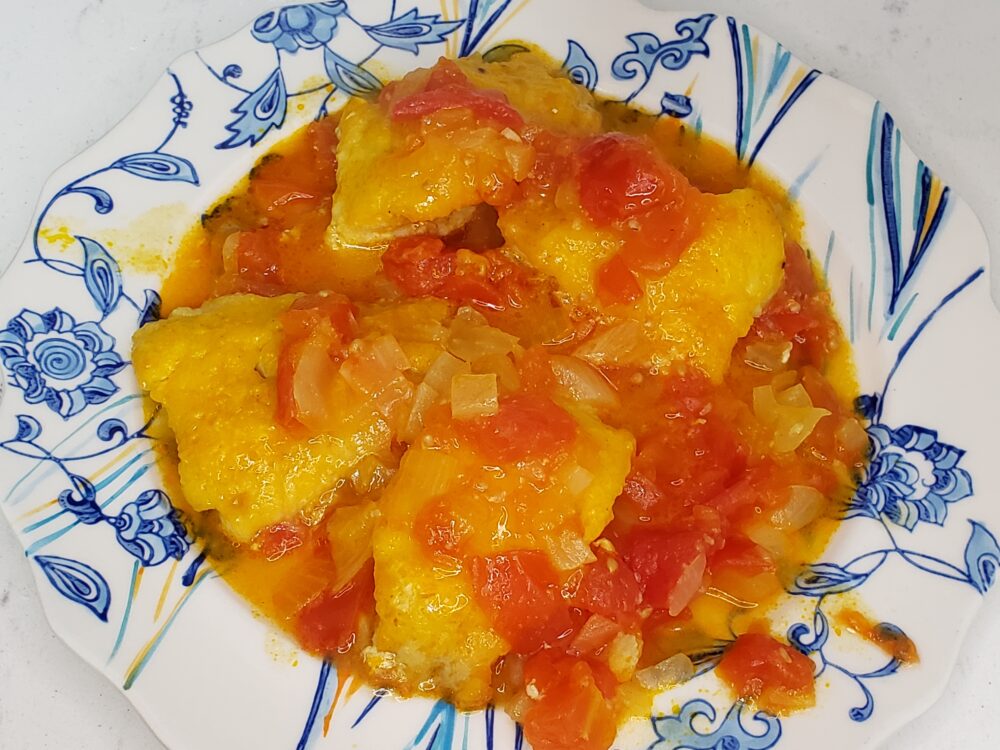


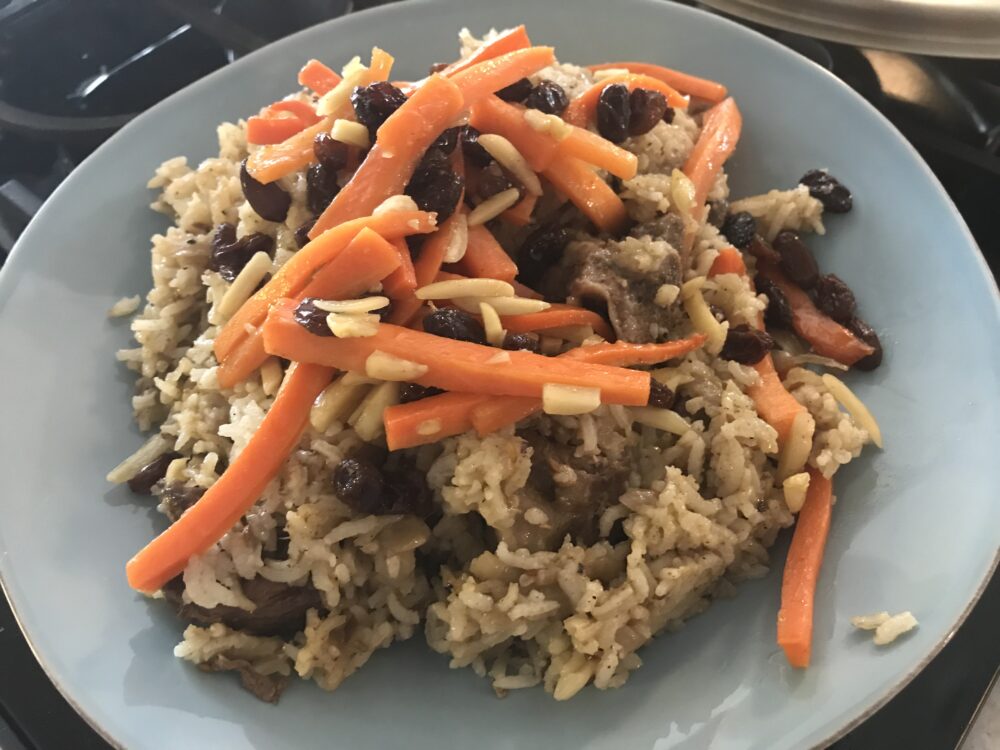
Thanks for sharing my recipe for Lechon Asado